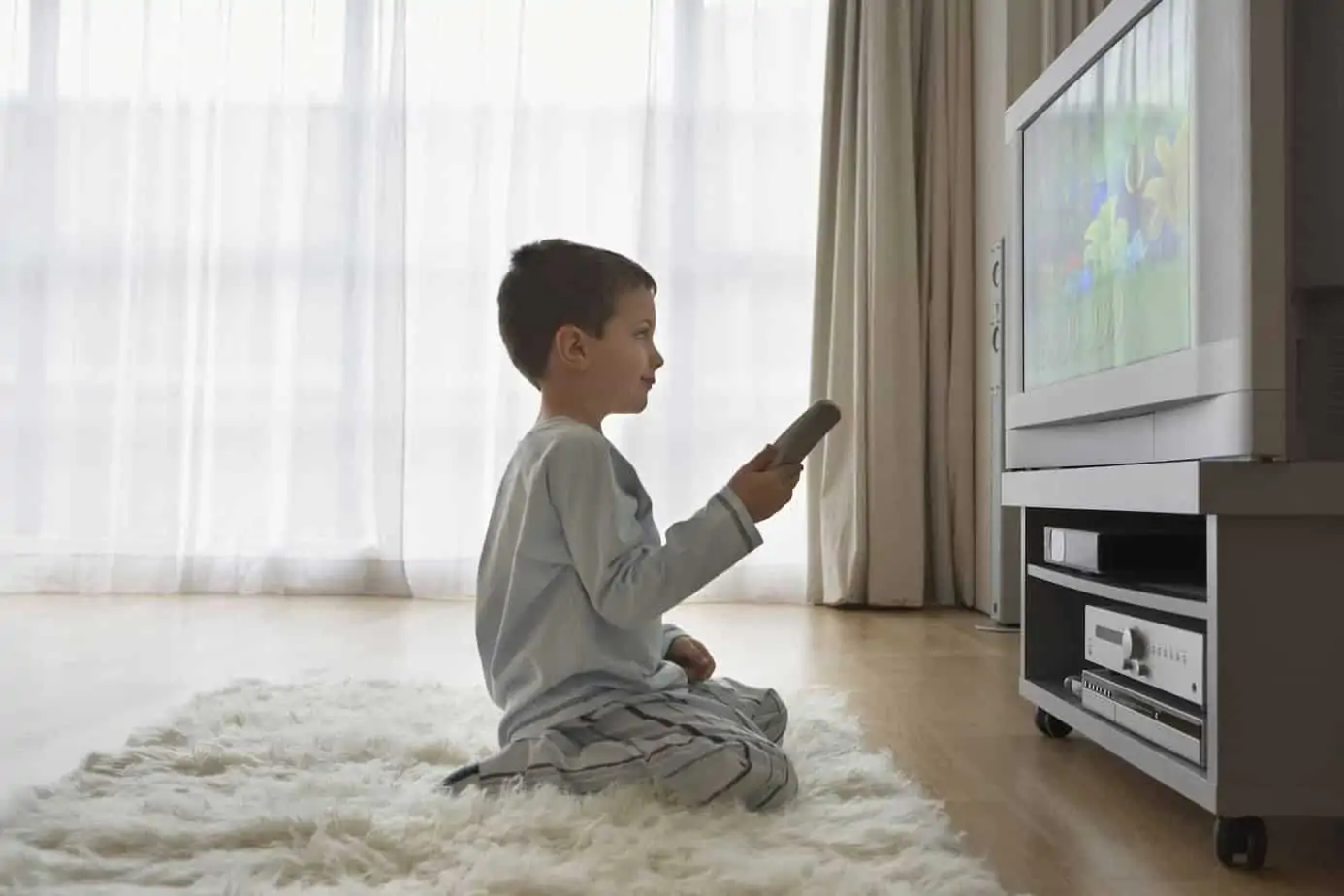The 4 parenting styles; identify your parenting approach & align with what research says is the best parenting style. Parenting style affects children’s confidence, health, self-esteem and overall well-being. How to give your kids the best outcome in life.
Your parenting style can affect everything from how close your relationship is with your children, how confident kids are, and who your child choses as friends.
Your parenting style also contributes to what triggers you to yell and what pushes you to your limits.
Researchers have identified four types of parenting styles:
- Authoritarian
- Authoritative
- Permissive
- Uninvolved
Each style takes a different approach to raising children, and can be identified by several different characteristics.
Before we talk about each style of parenting and how it relates to yelling, please take the quiz below to find out your parenting style.
Take the Parenting Style Quiz Here
Your Personality Factors Into Your Parenting Style
Keep in mind one parenting style isn’t better or worse than another; they each have their own benefits and drawbacks.
What’s more, your personality as it relates to your parenting style is a gut reaction which often happens when you’re under stress or angered.
Therefore, it’s so important to be aware of your parenting style and to recognize how your natural response to your kids might influence their behavior.
It’s also important to remember that your parenting style is not an excuse for your negative reactions to your child.
For example:
- I’m an authoritarian parent, so I can’t help myself from bossing my kids around. (No)
- I have a permissive personality, so I can’t enforce rules or stick to a routine. (No, no and no)
Your personality and parenting style drive your “gut” reactions, but even in the heat of the moment, you have a choice.
The 4 Parenting Styles
Authoritarian Parenting
Do any of these statements sound like you? If they hit close to home, you might be an authoritarian parent:
- You believe kids should be seen and not heard.
- When it comes to rules, you believe it’s “my way or the highway.”
- You don’t take your child’s feelings into consideration.
Authoritarian parents believe kids should follow rigid rules without exception.
When your children question “why” when you state a rule, or say “no,” this makes you angry. An authoritarian parent is not interested in negotiations and see a child who questions their rules, boundaries and authority as disrespect, and disobedience.
Authoritarian parents demand their children follow those rules, withdrawing love and approval if they aren’t satisfied with the end results.
An authoritarian parent forgets to allow children to be involved in problem-solving challenges and instead, see themselves as the authority to make and enforce rules with little regard for a child’s opinion. When a child shares their opinion, and doesn’t go along with the rules – this makes an authoritarian parent upset.
If you’re an authoritarian parent, you might find yourself ordering and bossing around your kids.
This is because you need things to be done your way, which in turn invites power struggles. No one wants to be bossed around and their natural inclination is to push back.
Overtime, by living under strict rules, a child can become hostile or aggressive with their parent and this will escalate the parent’s anger and severe the connection to the child.
Authoritarian parents can sometimes lack warmth, and this can also hurt you from connecting with your child after you yell, particularly with saying “I’m Sorry.”
Authoritarian parents command control and respect and when they feel like they’re losing some control or a child has difference of opinion, they take this personally and can lash out.
Permissive Parenting
Do any of these statements sound like you? If they do, you might be a permissive parent:
- You set rules but rarely enforce them.
- You don’t give consequences often.
- You think your child will learn best with little interference from you.
Permissive parents are very lenient. They often only step in when there’s a serious problem and give their kids ample space to make decisions, and simply, let their children “run the show.”
They’re forgiving and adopt an attitude of “kids will be kids” but when they stand their ground and use consequences, they may not be able to enforce them so they stick because children learn they are in control. Many times, they fail to set limits, make few demands and dish out zero consequences for misbehavior.
They might give privileges back if a child is pitching a fit, begging or may allow a child to get out of time-out early if he promises to be good or clean their room after they play.
Permissive parents usually take on more of a friend role than a parent role.
They often encourage their children to talk with them about their problems, but they usually don’t put much effort into discouraging poor choices or bad behavior.
Kids who grow up with permissive parents are more likely to struggle academically. They may exhibit more behavioral problems as they don’t appreciate authority and rules. They often have low self-esteem and may report a lot of sadness.
Uninvolved Parenting
Do any of these statements sound familiar? If they do, you might be an uninvolved parent:
- You don’t ask your child about school or homework.
- You rarely know where your child is or who she is with.
- You don’t spend much time with your child.
Uninvolved parents tend to have little knowledge of what their children are doing.
There tends to be few rules. Children may not receive much guidance, nurturing, or attention. Uninvolved parents expect children to raise themselves. They don’t devote much time or energy into meeting children’s basic needs.
Uninvolved parents may be neglectful but it’s not always intentional. At other times, uninvolved parents lack knowledge about child development. And sometimes, they’re simply overwhelmed with other problems, like work, paying bills, and managing a household.
Authoritative Parenting
Do any of these statements sound like you? If they do, you might be an authoritative parent:
- You put a lot of effort into creating and maintaining a positive relationship with your child.
- You explain the reasons behind your rules.
- You enforce rules and give consequences, but take your child’s feelings into consideration.
Authoritative parents have rules with reasonable consequences, but they also hold court to hear the child’s opinion.
If you’re an authoritative parent, you set high standards for your children and closely monitor their behavior. Discipline is generally reasoning-based.
Authoritative parents validate their children’s feelings, follow through with consequences and ultimately enforce boundaries.
Authoritative parents are closely aligned with Positive Parenting methods and invest time and energy into their child’s development using positive discipline strategies to reinforce good behavior, like meaningful praise beyond saying “good job” and encourage the individual’s growth and pursue or passion projects.
Parents who fall into this category are nurturing and not afraid to show their children kindness and respect. They are versed in the encouragement of decision-making and promote the benefits of learning from one’s own mistakes.
Children raised with authoritative discipline tend to be happy and successful and feel safe to express their opinions to their parents when an angry parent yells, hurts feelings, raises their voice or stand their ground when they feel wrongly slighted.
Science Says This is the Best Parenting Style for Raising Kids
Many studies show authoritative parenting is the best parenting style.
Our personalities determine how we respond to our children, but the good news is that you can learn how to override and respond to your children in a positive way, which doesn’t involve raising your voice.
Sometimes parents don’t fit into just one category, so don’t worry if there are times when you lead more towards being permissive and other times when you’re in an authoritative role.
Your parenting style points at your natural tendencies, especially when you’re stressed, rushed or in the thrones of chaos and turn to your gut reactions towards those you’re most comfortable with.
Science says the authoritative parenting style is the best for raising kids in a positive home environment in ways to help them grow, learn and be happy children and adults.
Once you’re aware of your natural tendencies you can chose a different response.
Adjusting Your Parenting Style: Breaking Old Habits
If You Are an Authoritarian Parent…
- Limit ordering, correcting and directing your children and other important people in your life.
- Don’t correct the child if things aren’t done “your way.”
- Give up some of your decision-making authority in areas where it doesn’t really make a difference. Give the child plenty of choices that allow her to make real decisions throughout the day.
- Decide which things are really the most important and let the rest go. Relax a bit!
- Say, “Yes!” more. Find ways to turn a “No” response into a “You bet!” When the child asks, “Can we go to the park?” Resist saying “No, there’s too much to do after school.” Instead, say “Wow, the park sounds like fun! We can go tomorrow after school or over the weekend. When would you prefer?”
If You Are a Permissive Parent…
- Practice saying “No” to your kids. Your job is not to be their best friend. Your job is to balance kindness with firmness.
- Set limits and hold firm to those limits.
- Recognize that people love you and value you unconditionally. Their respect and affection is not based on how much you do for them.
- Establish routines (that you consistently follow) for before school, after school and bedtime.
- Work on a healthy balance between strictness and permissiveness. Too much permissiveness may result in children being demanding or spoiled.
- Allow Natural Consequences to play out.
If You Are an Uninvolved Parent…
- Likely, because you’re reading this article, you do not fall into this category. However, if you do, the harsh reality is that your child needs you and you haven’t been the parent they need you to be up to this point. It’s time to step up to the parenting plate and stop being uninvolved – children cannot raise themselves. Your kids need you to be present and involved.
If You Want to Learn How to Stop Yelling & Responding in the Heat of the Moment..
The Calm Parenting: Learning to Stop Yelling eBook and companion Workbook will take you through all the steps to:
- identify your anger triggers
- identify environmental triggers
- strategies to help you change your response
- learn the 5 most important tools to creating your unique Calm Down Toolkit
- stop yelling and start connecting with your kids
Want even more?
Shop All Parenting Resources
Shop all of our parenting resources from self-regulation tools and managing big emotions to building self esteem and confidence. There are resources for all seasons of life!










Very interesting read, I just found out I have an Authoritative Parenting styling. Really interesting details and things to remember as a parent. Thanks for sharing at Merry Monday!